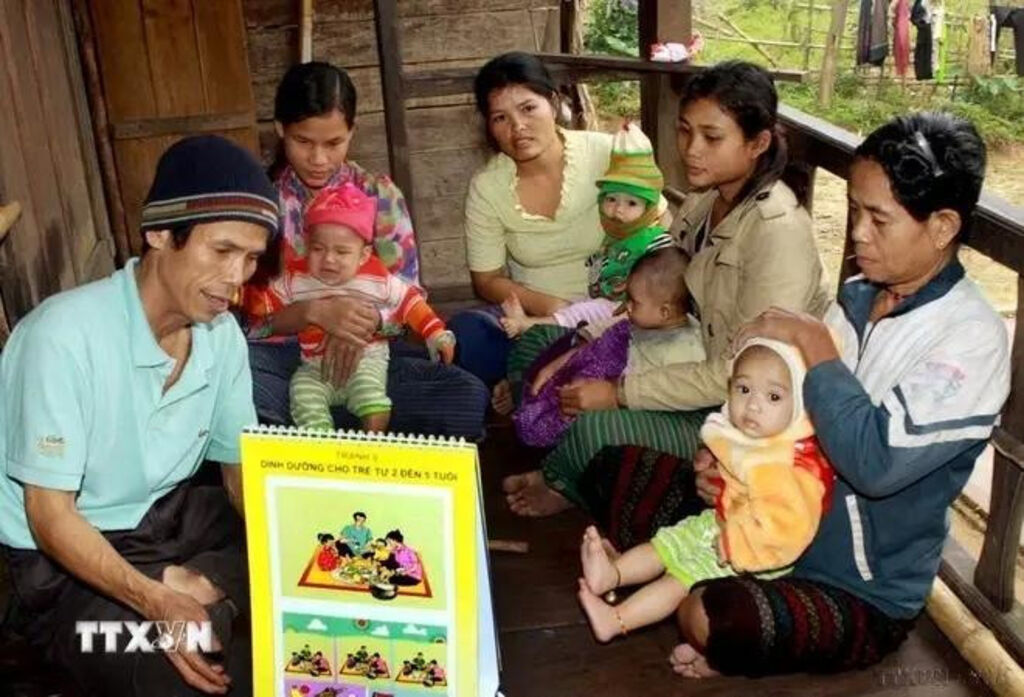 |
| A grassroots health worker gives advice on child nutrition to Bru - Van Kieu ethnic people in Quang Tri province__Photo: VNA |
Minister of Health Dao Hong Lan has recently presented a report on the draft Population Law to the National Assembly (NA). This is considered a move to respond to the country’s rapidly aging population, with a focus on major priorities such as maintaining replacement fertility, reducing gender imbalance at birth, adapting to an aging society, ensuring reasonable population distribution, among others.
The draft law is designed to replace the 2003 Population Ordinance while retaining the appropriate existing provisions of the ordinance. It also aims to establish a modern, humane and flexible policy framework, which is expected to help build a comprehensively developed, aging-adaptive population, improve human resource quality, and ensure sustainable social security.
The draft law sets the target to minimize the imbalance in the sex ratio at birth. It backs the inclusion of principles on eradication of son preference and gender-biased sex selection in village conventions and codes of communities.
The draft law also proposes suspending medical practitioners who reveal fetal sex to clients, except cases of determination of sex for diagnosing or treating genetic diseases.
To maintain replacement fertility, the draft proposes increasing the maternity leave period for second-child births. Specifically, a woman giving birth to a second child would receive an additional month of maternity leave, while her husband would be entitled to five extra working days off. Moreover, a woman with two children, or a man raising two offspring without his wife or in case his wife died would receive priority in purchasing or renting social housing.
The draft law devotes a separate chapter on support policies on elderly care, encouraging the development of long-term and community-based care services, as well as the expansion of the geriatric workforce through the training of doctors, nurses and social workers specialized in elderly care.
However, some NA deputies, when discussing the draft law, said that there remain policy gaps that need further considerations in terms of maintenance of replacement fertility, adaptation to population aging, and population quality improvement. They suggested adopting more comprehensive policies on employment, social security, healthcare, education and housing to help young couples feel secure to give births. They also pointed to the need to introduce more specific provisions for reducing reduce gender imbalance at birth, increase sanctions, and establish a periodical supervision mechanism.- (VLLF)









